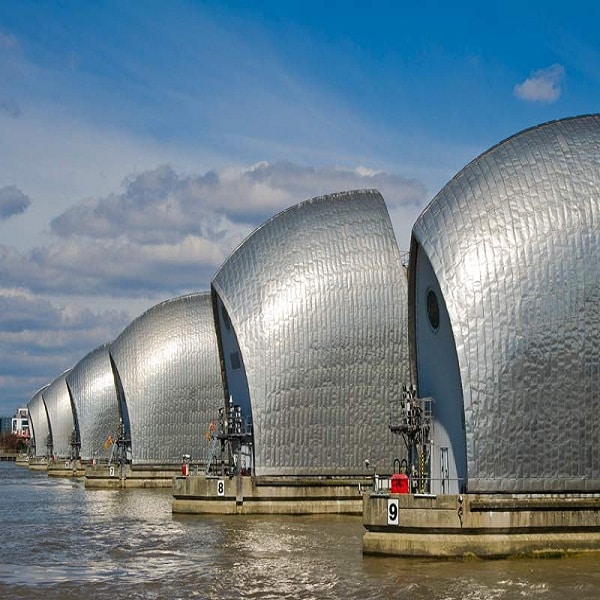Water resources engineering is the quantitative study of the hydrologic cycle — the distribution and circulation of water linking the earth’s atmosphere, land and oceans. Surface runoff is measured as the difference between precipitation and abstractions, such as infiltration (which replenishes groundwater flow), surface storage and evaporation. Applications include the management of the urban water supply, the design of urban storm-sewer systems, and flood forecasting.
Hydraulic engineering consists of the application of fluid mechanics to water flowing in an isolated environment (pipe, pump) or in an open channel (river, lake, ocean). Civil engineers are primarily concerned with open channel flow, which is governed by the interdependent interaction between the water and the channel.
Applications include the design of hydraulic structures, such as sewage conduits, dams and breakwaters, the management of waterways, such as erosion protection and flood protection, and environmental management, such as prediction of the mixing and transport of pollutants in surface water. Hydroelectric-power development, water supply, irrigation and navigation are some familiar applications of water resources engineering involving the utilization of water for beneficial purposes. More recently, concern for preserving our natural environment and meeting the needs of developing countries has increased the importance of water resources engineering.
Civil engineers play a vital role in the optimal planning, design and operation of water resource systems. Job opportunities in hydrology and water resources are quite varied.
To work as a hydraulic engineer, you’ll need to complete a bachelor’s degree. Many schools offer hydraulics engineering as a concentration or track within a general or civil engineering undergraduate degree program. In addition to gaining a solid foundation in engineering, you’ll learn about the concepts of hydraulic engineering through elective coursework. These courses may include fluid mechanics, hydrology and storm water management, hydraulic design and water quality controls.
There are many graduate degree programs available if you want an advanced education in this field. Master’s degree programs in hydraulic engineering incorporate classroom instruction with research opportunities. These programs take at least two years to complete, and a thesis is typically required. Graduate-level coursework in hydraulic engineering may include:
- Surface hydrology
- Hydraulic analysis
- Environmental fluid mechanics
- Groundwater flow
- Sediment transport
- Open-channel hydraulics
- Hydraulic modeling
- Municipal water systems
Positions are available in large and small consulting firms, and at all levels of government (municipal, provincial and federal).
Source: McGill (abridged Learn.org)










